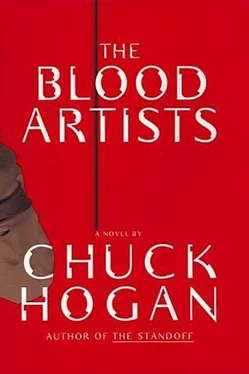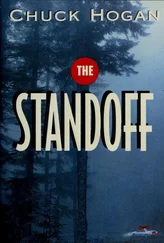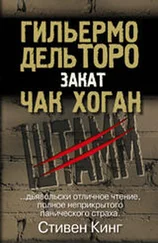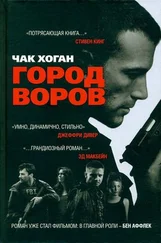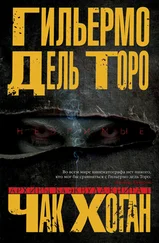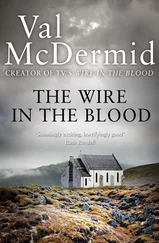She noticed that Maryk was carrying a first aid kit in place of his black bag. It was set on the stones between his feet.
“Zero is breaking apart,” he said. “He’s holed up somewhere, waiting, but he can’t wait long. He’s dying, and I’ve taken Atlanta from him.”
It was over, or nearly over, and yet Maryk did not appear pleased. There was no sense of victory about him as he sat looking at his shadow on the stones. The kit was open between his black shoes. She could see his eyes, and they were lower and brighter than usual. He was thinking hard about something, deliberating. She wondered what it meant that she knew him so well. She looked around the park, and everything in her field of vision, a hand rail, a scuff mark on a stone step, a bench, shimmered with echoes of humanity.
She looked back at him, and he was reaching down into the kit. He paused when he saw her, his hand remaining inside the bag almost as though she had caught him at something. Then his hand came out holding a syringe. She saw that the barrel was half filled with a clear fluid, and then she cheated a look at his face, and for one crazy instant thought he was going to turn on her and attack her. He had that look in his eyes, the same glare of murderous intent she had seen inside the airport tunnel. He straightened with the syringe in his hand, and stared at her, breathing deeply.
He appeared oddly full of adrenaline. None of this made sense to her.
“Why did you bring me here?” she said. Something was telling her to stand and run away. “What’s wrong with you?”
He was looking at the syringe now. He held it like a pen, staring at it as though in deep deliberation.
“I want to go back,” she said, standing.
He did not rise after her. Her jumpiness turned to frustration, fed by his silence. Stephen Pearse was dying in a hospital cell a few miles away.
“Why are you just sitting there?” she said.
He turned the syringe over in his big right hand. His silver eyes rose only as high as her knee.
“Why won’t you visit Stephen?” she said. She was angry now. Emotions were coming at her randomly, like asteroids, fragments of long-ago eruptions. “He used to be your best friend.”
Her voice faltered and she stopped and breathed through it, and realized she was crying again, though she hadn’t thought that possible. She used her fingers to whisk away the tears.
“It is Stephen, isn’t it?” she said. That explained the syringe. “His fate. It’s different when you know the person who is sick and suffering, know them well, and have some stake in their well-being, A part of you, invested, that withers when they wither. That will die when they die.”
The syringe turned more slowly, and she sensed something building in him, perhaps something like rage. The fountain itself seemed alive with it, as though it were going to explode. He looked up at her then, the fountain pluming behind him, and she expected to see a different face, but it was his own. He did not look murderous anymore. The syringe remained in his hand, but Maryk looked strangely vulnerable.
Something was giving way inside her as well. The frustration she felt, the loneliness, the waiting, stinging her eyes. Her voice was steady and collapsing at the same time. “He told me I needed to save you,” she said. “What does that mean? Save you from what?”
Whatever Maryk had been thinking, it seemed to pass. He set the syringe back inside the kit and closed it and stood. He was a moment balancing himself, looking away, and she recognized at once that low-eyed expression, the slant coming into his face like a ripple across a tableau of water, and the faint slackness in his jaw. The drowsy look that twisted his face in a strange way that made him appear sad.
He was cascading, and trying to hide this from her. She looked up at him wordlessly for an answer.
“The lab,” he explained. “I was looking at Zero’s virus.”
She didn’t believe him, but could not understand why he would lie. She could not understand anything about him anymore.
He turned himself toward the car. “I’ll visit him,” he said, and she knew what that meant. He was going back to the BDC to put to death the only friend he ever had.
I knew then why people fear the ill. Because when health is boiled off the body, like meat off a bone, something elemental is revealed beneath: our pained selves, bombarded from without and within, expiring with every breath. Frightened creatures — small, afraid, and alone.
I was a mere consciousness by then, a brain, a mind, an impaired intelligence existing apart from the body — alone, like a single, struggling cell.
The prenatal human is pristine in nature. The womb is safe, a clean place for a developing organism, and biologically we are all perfect at the instant of birth. But with that first independent breath comes the microbiota, swarming and colonizing the amniotic-mucked newborn who from that flawless primary instant is engaged in a lifelong struggle against his own death. Every touch, every kiss, every cuddle; every word whispered to an unformed face; every new room into which an infant is carried. Every step is an assault of all the natural world upon this new life form struggling moment to moment for survival.
I was not rotting of Plainville. I was rotting of life, of the effluvia of existence, being dragged into eternity by the cumulative disease of a lifetime of exchanges from submicroscopic to tangible, from the most profane to the most pleasing. Existence was my ultimate undoing, not this virus. Not Zero.
Peter and Melanie appeared at the viewing window. Melanie cupped her hands to the glass, looking for my wasted body in the corner, while Peter disappeared behind her. It was dark inside the Tank now, and the most she could have seen of me would have been a vague gray shape in a chair backed into the far corner.
I awaited Peter’s words. Typed from the tablet at the nurse’s table, they appeared in stark, white letters scrolling across the black field of the wall screen.
>Stephen. What are you doing?
I typed: I am waiting now, Peter. I must wait alone.
>Why have you barricaded the door?
I feel close to him, Peter. So close now.
>Stephen. Move the hyperbaric chamber. Let me in.
Do you remember the sick girl, Peter? The one we went to Africa for in the first place? Jacqueline?”
>Yes.
I could not do it then.
>I know that.
You had to do it for me.
>I remember, Stephen.
You are the one who cannot do it now.
His next sentence was slow in coming.
>What happened to the lights, Stephen?
I broke them with the top of my IV stand. I want to suffer in private now. There was no one outside to stop me. The Tank is unguarded, and I notice also that the BDC net is silent. I fear the worst.
Peter then typed in what he had done. The words scrolled slowly before my hungry red eyes. I typed back:
Wonderful.
>That is not the response I would have expected from you.
How does it feel to infect an entire city, Peter? Does it feel good?
>No, Stephen. It feels dirty.
I notice Melanie was unaffected.
>No. She has been affected very greatly. But not by me.
The words glowed before my eyes.
Zero.
>He got to her inhaler. No symptoms yet. But she cascaded me.
Then you have not told her?
>No.
How strange that, even in my incapacitated state, I was still the only one Peter Maryk could talk to. And at once, I understood.
You cannot kill her, can you, Peter?
>The virus must be contained.
Читать дальше
